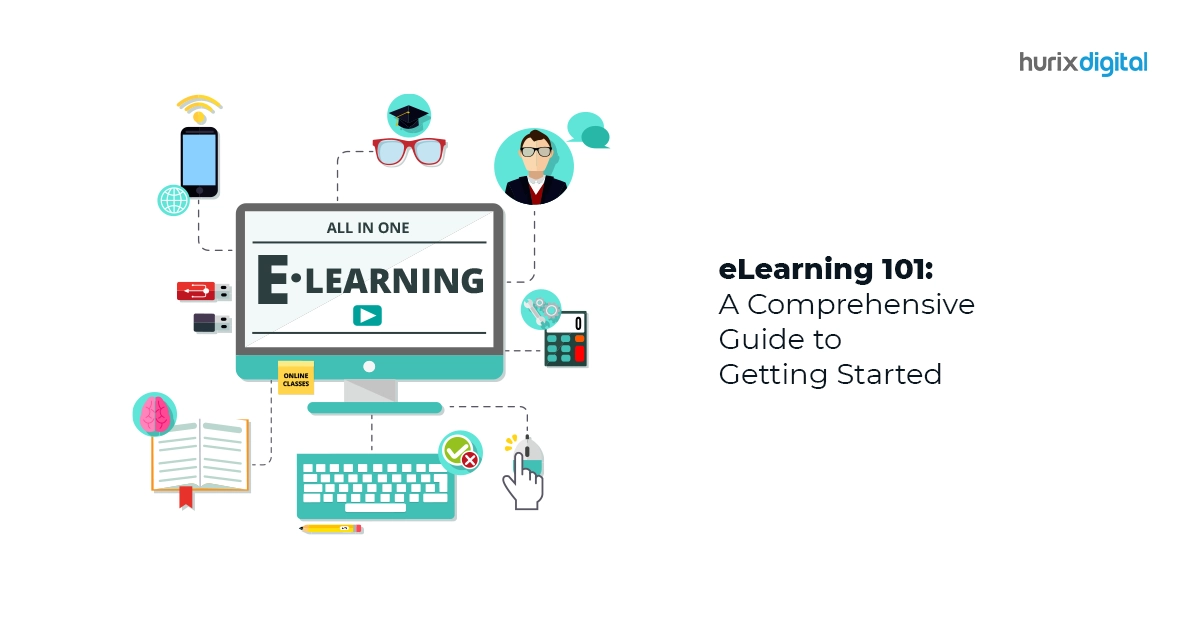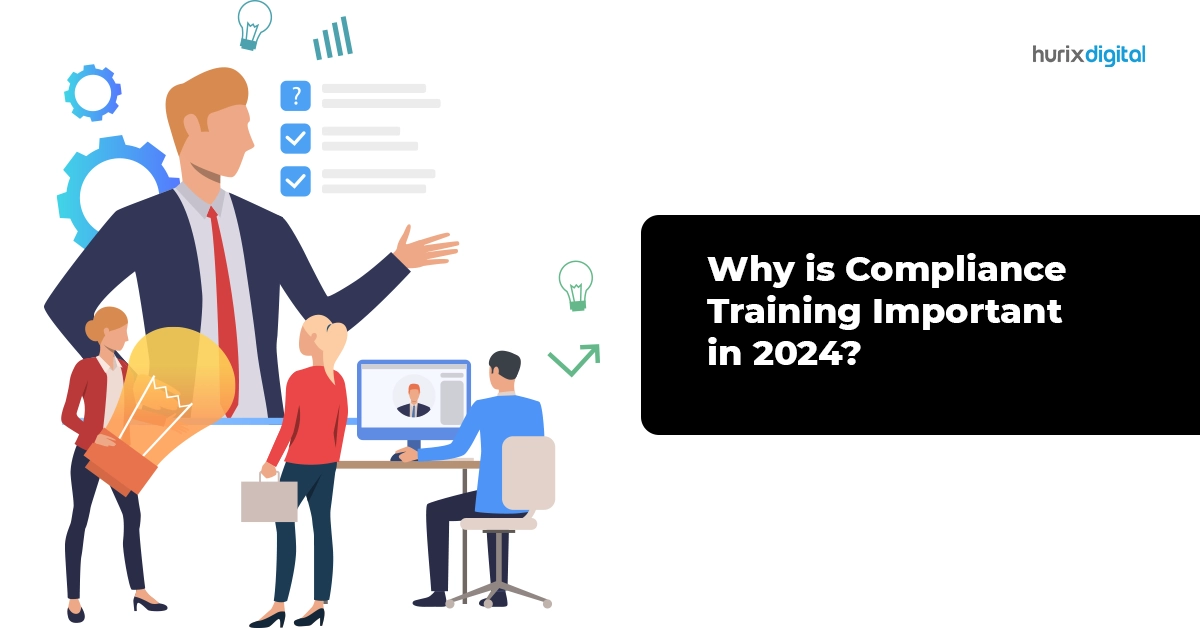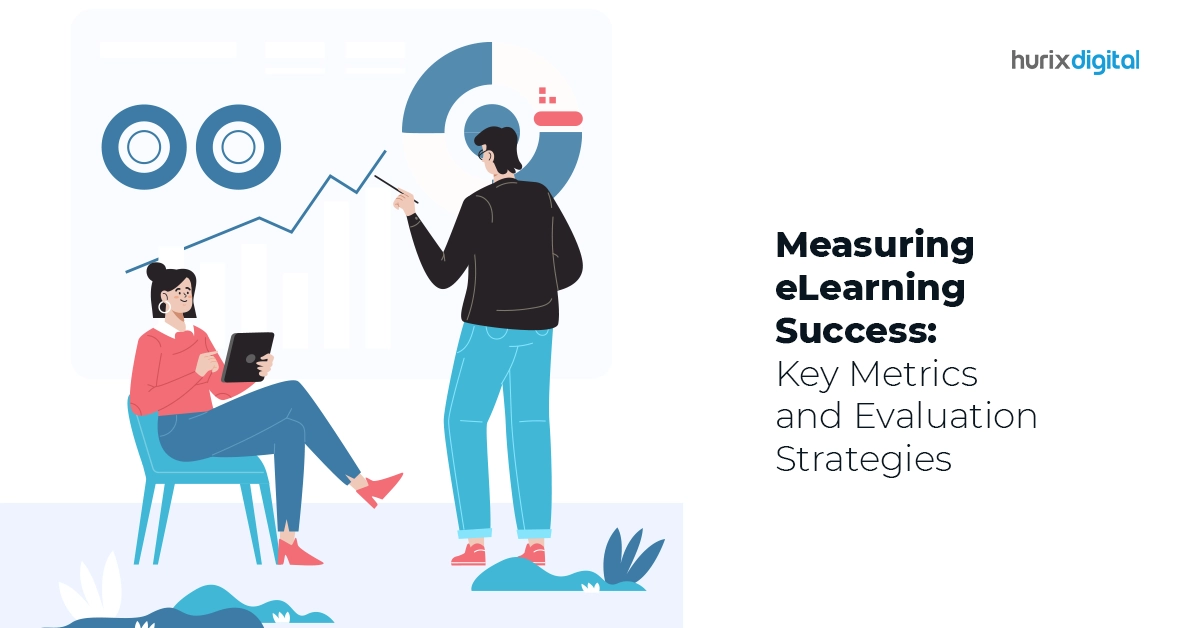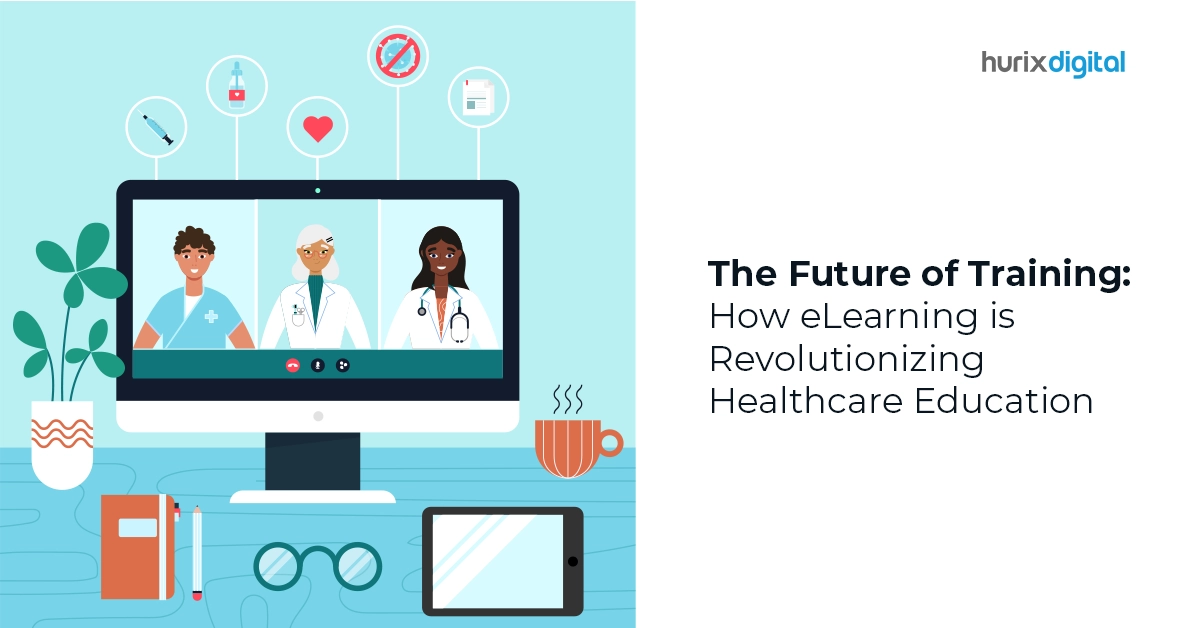Summary
Delve into the world of eLearning with a comprehensive guide covering eLearning solutions for your organization. Learn the importance of online training modules, the versatility of eLearning solutions, and how to track employee performance. Elevate your learning experience with Hurix Digital, your partner in transformative eLearning solutions.
In the fast-paced world of corporate learning, leveraging the power of eLearning has become more than just a trend—it’s a necessity for fostering continuous growth and development. This comprehensive guide will unravel the intricacies of eLearning, exploring its applications in workforce learning and corporate training.
Table of Contents:
- Why Are Online Training Modules Important for Workforce Learning?
- Understanding eLearning in the Enterprise Context
- Key Components of Successful Enterprise eLearning
- Implementing eLearning Solutions in Corporate Settings
- Tracking Employee Performance through eLearning
- Conclusion
Let us first understand importance of eLearning modules to upskill the workforce.
Why Are Online Training Modules Important for Workforce Learning?
In the realm of workforce learning, online training modules play a pivotal role in shaping the skills and competencies of employees. The importance lies in their accessibility, allowing employees to engage in learning activities at their own pace and convenience.
Online training modules facilitate uniformity in training content, ensuring that every employee receives consistent and up-to-date information. This consistency is particularly crucial in industries where compliance and regulatory knowledge are paramount. Furthermore, the interactive nature of these modules enhances engagement, making the learning experience more enjoyable and effective.
Understanding eLearning in the Enterprise Context
eLearning is a transformative approach to education and training, utilizing technologies to deliver content and facilitate learning. In enterprises, implementing eLearning involves a strategic blend of technology and instructional design to create engaging, effective, and scalable learning experiences.
To get started in enterprises, begin by conducting a needs analysis. Identify the specific skills and knowledge gaps within your organization, aligning them with your business objectives. Choose a robust eLearning platform that offers customization options to tailor the learning experience to your unique requirements. Leverage multimedia elements, interactive assessments, and real-world scenarios to create content that resonates with your employees.
- Defining eLearning for Enterprises
eLearning is a transformative approach that leverages digital technologies to deliver educational content. In the context of enterprises, it goes beyond conventional training methods, providing a scalable and customizable solution for continuous employee development.
Key Components of Successful Enterprise eLearning
- Content Development: Crafting engaging and relevant content is the foundation of effective eLearning. Ensure content aligns with organizational goals, is interactive, and caters to diverse learning styles.
- User-Friendly Platforms: Choose an intuitive eLearning platform that promotes easy navigation and seamless user experiences. A user-friendly interface contributes significantly to the overall success of a learning and development initiative.
- Scalability: Successful enterprise learning programs must be scalable to accommodate the evolving needs of a growing organization. The platform should support expansion without compromising the quality of the learning experience.
- Assessment and Feedback: Incorporate assessments and feedback mechanisms to gauge the effectiveness of eLearning initiatives. Regular assessments help in measuring progress and refining content based on performance data.
Also read The Impact of eLearning in Corporate Training and Development
Implementing eLearning Solutions in Corporate Settings
Corporate learning is not just about imparting knowledge; it’s about creating a culture of continuous improvement. eLearning solutions offer a versatile toolkit for achieving this. From onboarding programs to leadership development, eLearning provides a scalable and cost-effective means of nurturing talent within the organization.
The flexibility of eLearning allows employees to engage in learning activities without significant disruptions to their work schedules. Moreover, the tracking and analytics features embedded in eLearning platforms enable HR and L&D professionals to monitor progress, identify trends, and tailor future learning initiatives based on data-driven insights.
- Tailoring Solutions to Organizational Goals
Enterprise learning through eLearning should align seamlessly with organizational objectives. Whether it’s onboarding new hires, upskilling existing teams, or fostering a culture of continuous learning, customization is key to meeting specific business needs.
- Nurturing a Learning Culture
eLearning contributes to the development of a learning culture within organizations. It empowers employees to take control of their professional development, fostering a mindset of continuous improvement that is vital for staying competitive in the market.
- Addressing Skill Gaps
Identifying and addressing skill gaps is a perpetual challenge for enterprises. eLearning solutions provide a targeted approach to closing these gaps, ensuring that employees acquire the skills necessary to excel in their roles.
Also Read: 9 Reasons Why Custom eLearning Solutions Are Better Than Off-the-Shelf Courses
Tracking Employee Performance through eLearning
Tracking employees’ performance is a critical aspect of effective talent management. eLearning simplifies this process by providing robust tracking mechanisms. Through Learning Management Systems (LMS), organizations can monitor employees’ progress, assess quiz scores, and analyze participation levels in various courses.
Additionally, eLearning allows for the implementation of personalized learning paths. By tracking individual performance metrics, organizations can tailor subsequent learning modules to address specific skill gaps or areas that require reinforcement. This personalized approach contributes to more efficient and targeted employee development.
- Learning Management Systems (LMS)
Implementing an LMS is instrumental in tracking employee performance. These systems provide a centralized hub for managing, delivering, and tracking eLearning content, offering detailed insights into employee progress.
- Personalized Learning Paths
eLearning allows organizations to create personalized learning paths based on individual performance metrics. Tailoring content to address specific skill gaps enhances the efficiency and effectiveness of employee development.
- Data-Driven Decision Making
The tracking features in eLearning platforms generate valuable data that can inform decision-making processes. Analyzing this data provides insights into the effectiveness of training programs, allowing organizations to refine their strategies for continuous improvement.
Also Read: Top eLearning Development Companies for Enterprises & SMBs
Conclusion: Elevate Your Learning Experience with Hurix Digital
In conclusion, embracing eLearning is not just a choice; it’s a strategic imperative for organizations aiming to thrive in today’s dynamic business landscape. For a seamless transition into the world of eLearning, consider partnering with Hurix Digital, a leading provider of innovative eLearning solutions.
As you embark on your eLearning journey, Hurix Digital stands ready to be your trusted guide. With cutting-edge technology, customizable platforms, and a commitment to excellence, Hurix Digital ensures that your organization’s learning initiatives align seamlessly with its strategic objectives. Connect with our solution experts for a 15 minutes discovery call.











